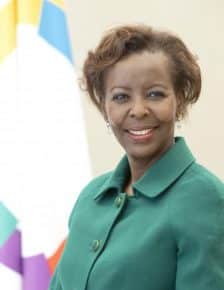From North to South, a world in search of balance
Overview
In a world that is becoming increasingly fragmented, the crucial issue of equitable representation of countries from the South in global economic summits such as the G7 and G20 is generating intense debate. These strategic forums play a role in global economic decision-making, but their current composition raises concerns about equity and diversity of voices. The limited representation of Southern countries in these bodies underlines the asymmetry of decision-making power, leaving certain regions of the globe under-represented. This asymmetry is confirmed by the governance of major international institutions.
The issue is not limited to a statistical distribution of seats, but goes to the heart of power dynamics and the ability of Southern nations to influence global economic policies. The recent enlargement of the BRICS is an event to be taken into account, but in practice it is likely to have a diffuse role in North-South balances.
From one pole to the other, the externalities arising from the climate crisis, access to education or health services for all, are excessively disproportionate. With this in mind, the search for mechanisms to ensure more meaningful participation by countries in the South, and to promote more equitable, inclusive and effective global cooperation, is of crucial importance for global governance.
Speakers





Coordinator

Moderator

Photo gallery
















